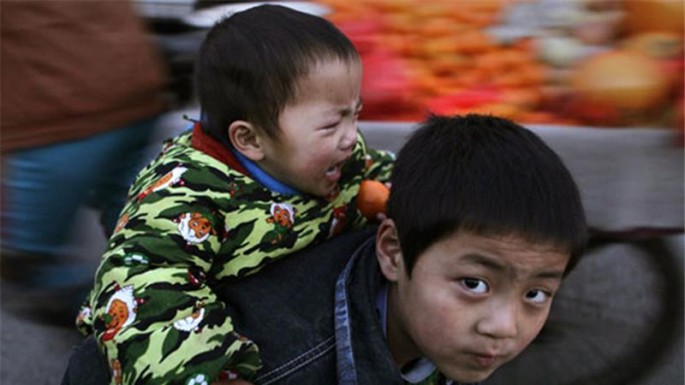According to the latest survey report of 21st Century Education Research Institute released on April 20, children living in the provincial areas of China suffer from pyschological and health issues compared to those living in the urban areas.
Conducted in 88 primary schools from the 20 provinces of central and western China, the research of the institute found out that 60 percent of students living in those areas had difficulty in building relationships with other people, while 45.7 percent had a low level of confidence.
While some students are suffering from psychological problems like behavior issues and lack of concentration, 30 percent of the surveyed children are lonely with their lives, 47 percent of them are not getting along with people around them, and 30 percent do not like attending school.
Some of them even ran away from home and practice stealing.
Proper nutrition and potable water are also the problem of provincial areas, as 20 percent of the children can hardly consume meat in a week and another 20 percent experience water poisoning.
Zhu Danna, chief program officer of the non-government organization BEAM alliance, told the Global Times that rural children felt insecure as their parents left them to work, while provincial children attending boarding schools were not being given enough psychological needs by the staff.
There were 500 respondents, including principals and teachers, in the survey comprised of interviews and questionnaires.
China has a total population of over 1.3 billion in 2014, and 17.1 percent of these are children aged 0-14 years old. Of these number, over 120,000,000 are male and over 107,000,000 are female.



























